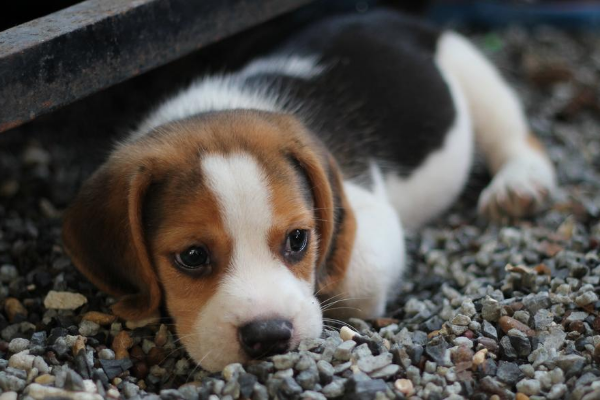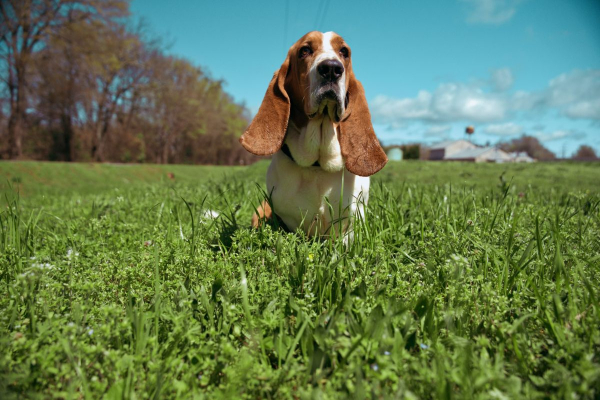Aargh! Your dog is scooting his butt on the carpet, or the grass, or even worse, the sidewalk. What in the world is that all about?

It’s a pain in the butt – literally!
While most dogs can reach their backend to lick at an itch or an irritation, sometimes a rougher surface is what they think will help relieve the itch or pain “back there.” Unfortunately, scooting can have some undesirable effects on a dog’s tender nether regions, causing skin abrasions and creating a mess on your carpet.
Two major reasons dogs scoot
Overly full or infected anal glands are two of the most common reasons dogs will scoot. Anal glands, located under the skin just to the side of the anus (at the 4 o’clock and 8 o’clock position) make a smelly, oily substance that dogs and cats use to mark their territory.
Some dogs, such as pugs, beagles, and basset hounds, make a lot more of the substance than required for the job, or the normal outflow tract becomes clogged. The glands’ tiny openings at the anus are near a big source of bacteria (poop), and occasionally, the glands can also become infected and abscessed.

Seasonal allergies
Dogs with seasonal allergies often have itchy butts and will also scoot. The itch can be so severe they’ll cause painful abrasions to the area. Fortunately, some brand new prescription medications, such as CytoPoint and Apoquel bring many dogs safe, welcome relief from their allergy symptoms with minimal side effects.
Serious conditions to be aware of
Unfortunately, a few very serious conditions can also cause dogs to scoot due to discomfort, including rectal or anal gland cancer and perianal fistulas. Rectal cancer is very serious and often life-threatening.
Perianal fistulations, infected tracts around the anus, are most common in unneutered male dogs and German Shepherds of both genders. They are treatable and usually have a favorable outcome than cancer.
Developing a treatment plan
A thorough physical exam, including a rectal exam, by your dog’s veterinarian, is an important first step in determine the underlying cause of scooting and developing a treatment plan that brings relief.


